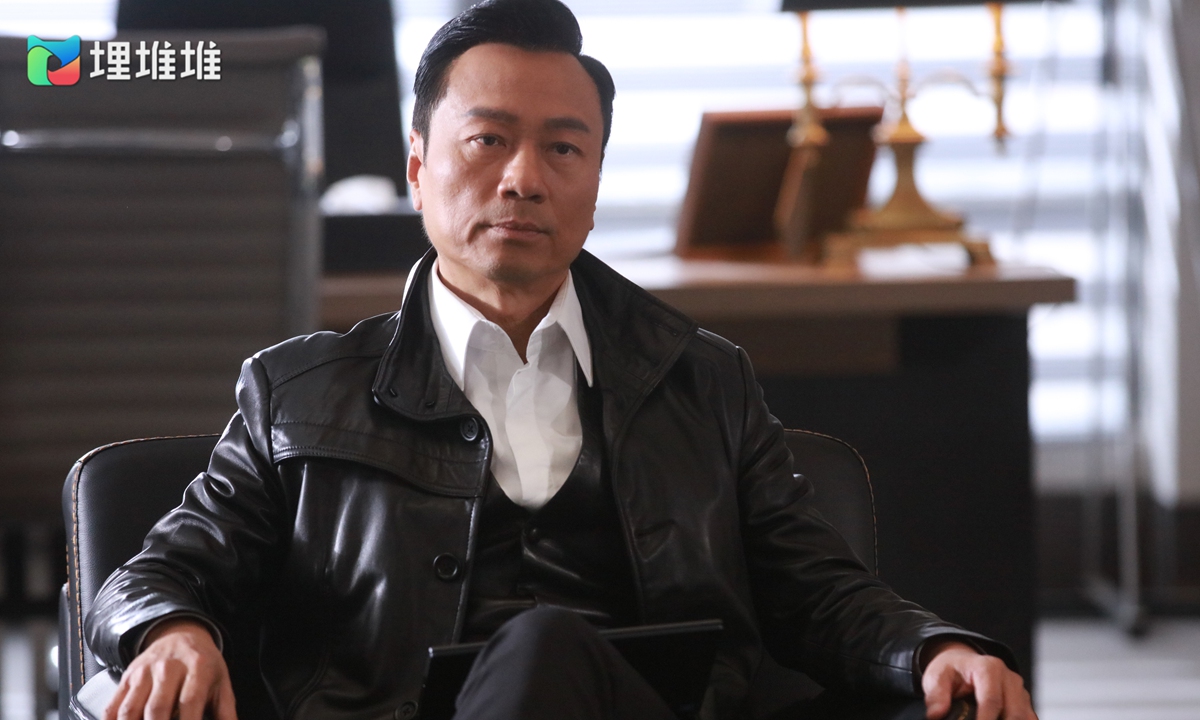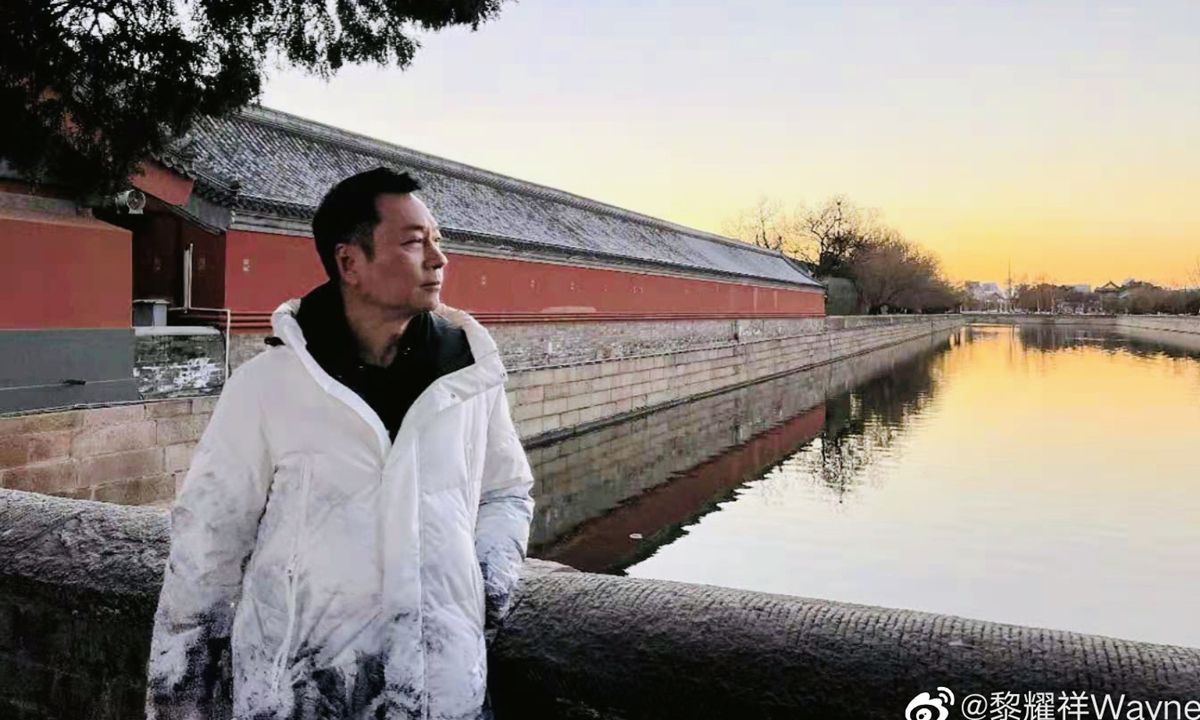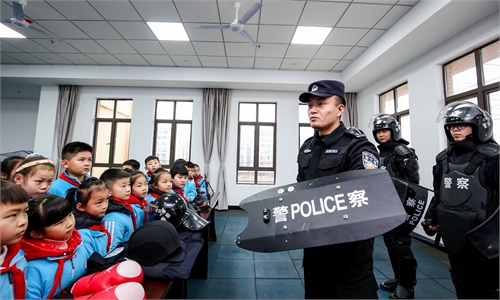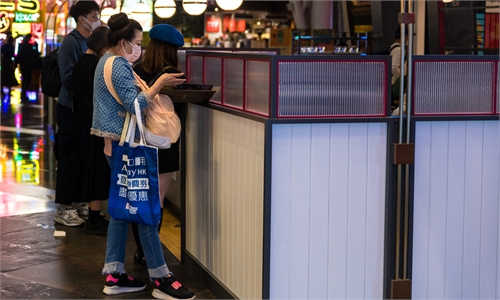ARTS / TV
Period dramas still popular in HK: renowned actor Wayne Lai
Looking to the past

Wayne Lai Photo: VCG 
Wayne Lai poses for a photo in front of the Forbidden City in December 2021 while traveling in Beijing. Photo: Courtesy of Wayne Lai
Wayne Lai (Lai Yiu-cheung,) one of Hong Kong's most successful TV actors and a winner of three TVB Anniversary Awards for Best Actor, has been working and living in the Chinese mainland for more than nine months now, enjoying the convenience that rapid development has brought to people's daily lives.Lai attended Anhui TV's Domestic TV Series Ceremony on the first day of 2022 with Hong Kong actress Sheren Tang (Tang Shui-man). When the two appeared on the red carpet arm in arm, many fans leapt onto China's Twitter-like Sina Weibo to express their joy as the two once played a popular couple in the Hong Kong period TV series No Regrets in 2010.
Although a dozen years have passed, the series remains one of Hong Kong's best received dramas. On Chinese media review platform Douban, the show has a high 9.3/10 and clips of Lai's performance are often posted as memes on social media.
"I think the success of No Regrets is mainly due to the depiction of the deep love between people during wartime, which is different from the romantic love among young people today and exclusively belongs to that era," Lai told the Global Times.
He said that he thinks historic themes and stories about the motherland, including those involving the War of Resistance against Japanese Aggression (1931-45), have an advantage over other themes, so they can more easily become popular among Hong Kong audiences as people get to see many things that they could never experience in an age of peace.
Shi Wenxue, a cultural critic in Beijing, told the Global Times that Hong Kong has had several TV dramas and movies with such themes, like 2017's Our Time Will Come, which did an excellent job depicting the resistance movement during the Japanese occupation of Hong Kong.
Shi noted that TV series can both entertain and educate audiences, so works that portray correct historical perspectives and values are able to teach Hong Kong viewers a valuable historical lesson so that they can become more familiar with the suffering of the Chinese people and their resistance against aggressors, and therefore have a deeper sense of identity as Chinese.
The series Hong Kong needs
Set in Guangzhou, South China's Guangdong Province, during the late 1930s to the late 1940s, No Regrets is an epic drama that centers on a triad family, the Guangzhou police force and the Japanese occupation of the city.
Cheng Kau-mui (Tang) is the eldest daughter of Cheng Long-kwan (Elliot Ngok), the gang's kingpin, and helps her father run the family's opium business.
On the other hand, Lau Sing (Lai) is the leader of the Criminal Investigation Team. He has worked hard all his life to ensure the best life for his own family.
The love story between the two is set against the background of the city's struggles during the Japanese occupation and the harmful opium trade. Besides Lau and Cheng, the drama also focuses on the fate of poor people during these troubled times, and tries to faithfully depict their experiences to raise the awareness of audiences.
Lai noted that tight relations between neighbors living in poor conditions and human kindness are also attractive points for today's audiences.
"Chinese people have had a miserable history and suffered a lot. What is shown in TV dramas can help allow people today learn about the stories that happened before," he said.
Ahead of the eighth National Memorial Day marking the Nanjing Massacre on December 13, 2021, a Hong Kong elementary school played for students a five-minute documentary about the massacre, in which more than 300,000 victims were brutally killed by Japanese troops in Nanjing, East China's Jiangsu Province, in 1937.
A few students reportedly felt scared and cried in class after watching the video, leading to complaints from some parents, local media reported.
According to the critic, high-quality TV dramas can be a more suitable way to educate younger members of the public and increase their patriotism.
"Using methods that are acceptable to young Hong Kongers will more easily allow them to get closer to the mainland," Lai said.
Mainland life
During his past nine months in the mainland, Lai has visited many places, including Beijing, Xi'an in Northwest China's Shaanxi Province and Yantai in East China's Shandong Province.
When talking about the most impressive part of his mainland life, Lai said it was the convenience.
"I can just take out my mobile phone and solve transport, dinning and other problems. It is completely different from dozens of years ago," Lai said, noting the development in the mainland impressed him.
He was also amazed by efforts to protect cultural relics throughout the mainland.
Lai recalled that he visited a restaurant in Yantai, which was a building belonging to a consulate 100 years ago, but now tourists can sit down, have dinner and appreciate the beauty of the architecture.
The actor also took part in some works in the mainland. He appeared on the variety show Action and has acted in works directed by some young mainland directors.
Lai was also impressed by the development of the mainland film and TV industry, saying that the mainland shows have diverse elements and have been able to grasp the preferences of audiences.




